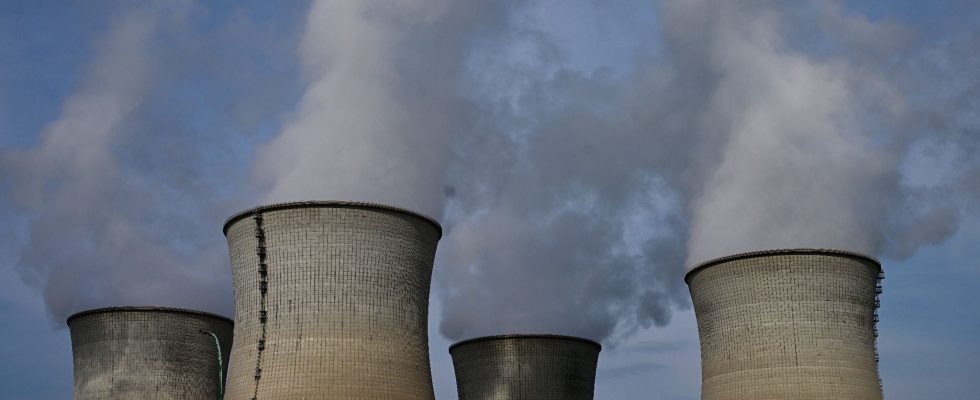The nuclear safety reform project made its return through the front door on Wednesday in the Council of Ministers, a contested reform which aims to “fluidize” decisions while France is engaged in a vast program to revive civil nuclear power.
At the same time, employees of the Institute of Radiation Protection and Nuclear Safety (IRSN) were called to go on strike, and some demonstrated not far from the Elysée.
A bill in the Senate on February 7
The government, after having tried to pass its reform in a legislative amendment, rejected in May, is putting it back into action, this time in the form of a bill which will arrive in the Senate on February 7 before a first vote six days later. Main measure, the merger of the IRSN, the “scientific police” of the sector, with the Nuclear Safety Authority (ASN), the policeman of power plants, two entities born in the 2000s from the lessons of the Chernobyl disaster.
“This development will make it possible to meet expectations in terms of deadlines and efficiency of the expertise, instruction, authorization and control processes,” explains the explanatory memorandum of the preliminary draft.
This large “Nuclear Safety and Radiation Protection Authority” (ASNR) must be created on January 1, 2025, adds the government, which is carrying a program for six new EPR reactors – Emmanuel Macron having promised to announce eight others “in the coming month”.
If the salary conditions of IRSN agents will be improved and research maintained within the future organization, the IRSN inter-union (CFDT, CGT, CFE-CGC) remains upbeat, just like the environmentalist associations, consumer organizations or even those living near power plants. The project was also warmly welcomed by most of the consultative bodies to which it was submitted.
“More time”
At the heart of the controversy: the fate of the independence of experts and transparency towards the public, with the fear in particular that IRSN’s assessments will no longer be published ahead of decisions.
On Wednesday morning, around 250 IRSN employees, according to an AFP journalist, marched in Paris, from Place Blanche to Place Saint-Augustin, not far from the Elysée where the text was to be presented. “Transparency is trust, opacity is distrust,” they chanted. “We are asking for a little more time so that things are better organized and done less urgently,” explained Nadia Rahni, a safety expert for twenty years at IRSN, for whom, faced with “all the questions that we asked her, the Minister (of Energy Transition Agnès Pannier-Runacher, editor’s note) kicked in: “We have no answers”, particularly in terms of justifications, she lamented.
Under the guise of making it more fluid, “we are cutting the IRSN” into pieces, added Jean-Jacques Ingremeau, a safety expert for eight years, who is alarmed by the departure of the safety and nuclear propulsion departments.
“It will cost millions to dismantle an entity that is functioning, and create three entities that will perhaps function in six years,” estimates Nevena Lattil-Querrec, of the CGT. “We are calling on the Prime Minister to listen to all the warnings, from the inter-union, academicians, consultative committees… We are asking for time for the working groups set up at the ASN and the IRSN.”
Critics of the project are all the more worried that it emerged in particular conditions, without prior diagnosis of the functioning of the system. And if he now speaks of a merger, it was then a question of dismantling the IRSN.
Before being examined on Wednesday at the Elysée, the fate of the Institute was sealed there on February 3 during a nuclear policy council behind closed doors. Its staff was informed three days later, then the public via a press release from the Ministry of Energy Transition.
